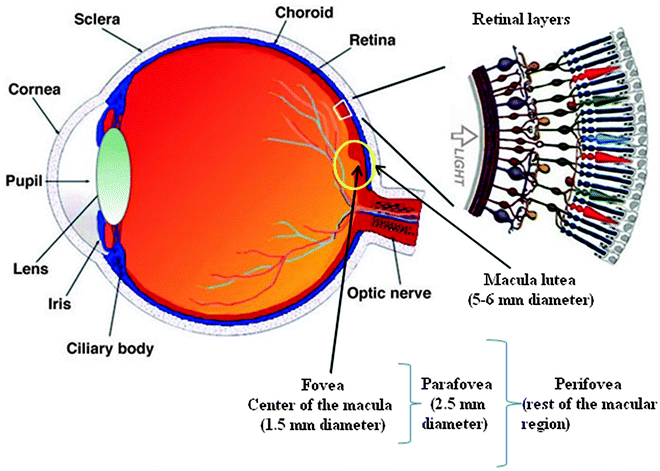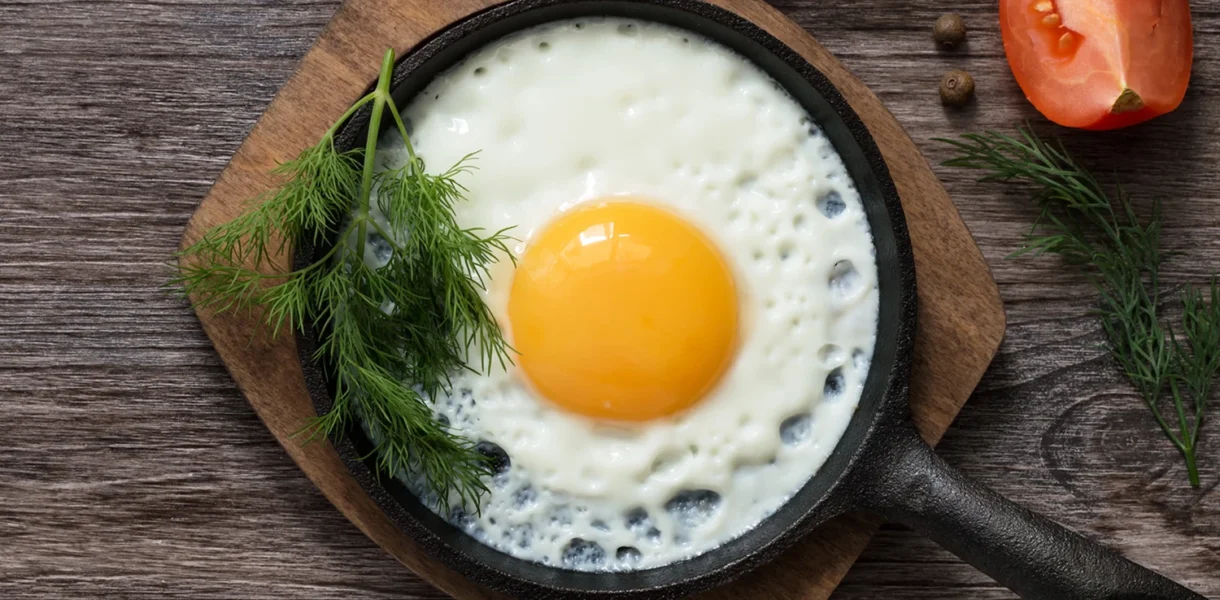Table of Contents
Cracking under pressure? We’ve all heard the rumors: eggs are bad for you, right? High cholesterol, artery-clogging nightmares… Well, I’m here to scramble those misconceptions! I took on the ultimate egg-speriment: eating NOTHING but eggs for 30 days straight. Was it an omelette-ical disaster, or did I discover the incredible, egg-cellent truth? Get ready to yolk out as I reveal the shocking results – including one surprising benefit you won’t want to miss!
Are Eggs Bad for You?

So, here’s an interesting question: what if your only protein source came from eggs? What would happen? Would you build up all this cholesterol in your arteries and die of a heart attack? Maybe a stroke? Well, actually no, you would not. Let me explain why.
- Eggs as a sole protein source won’t cause cholesterol buildup and heart problems.
Eggs and Cholesterol
In six major clinical studies, it was found that eggs did not increase or was not associated with heart disease in healthy people. They talk about all the benefits of eggs and how it doesn’t create a problem other than increase your good cholesterol and have all these other nutrients.
But the recommendation is really less than two eggs a day, which is interesting. If eggs are so good, why aren’t they recommending that? And I’m going to get to that in a minute.
If you look at any and all negative studies relating to eggs, they’re all questionnaire studies. They’re observational studies, and those are not real credible studies at all.
So, if you have a political slant or maybe a certain bias and you want a study to look a certain way, just do an observational study because you could make those look any which way you want.
And you’re basically just giving people a bunch of questions and forcing them to answer a certain way. First of all, how is someone going to remember what they ate even two days ago, let alone months or even years ago?
- Eggs don’t increase heart disease risk in healthy individuals (backed by clinical studies).
- The recommendation of less than two eggs a day is questionable.
- Negative studies about eggs are often based on unreliable observational data.
- Observational studies can be easily manipulated to fit a certain narrative.
So, what would happen if you just relied on eggs as your only source of protein? You’d actually do much better health-wise, and that’s what I want to get into in this topic.
I think the big problem that people have with eggs is being brainwashed… I mean educated in that eggs are high in cholesterol. When in fact, they are high in cholesterol, okay. But they also contain lecithin, okay, which is the antidote to cholesterol.
They’re loaded with choline, which is in… It’s actually one of the ingredients in bile salts that helps break down cholesterol and as well as B3, which is probably the best antidote to cholesterol problems. So, if you’re concerned at all about eggs increasing your cholesterol and making things worse, you don’t have to have that concern anymore.
- The misconception about eggs and cholesterol stems from misinformation.
- Eggs contain lecithin, choline, and B3 which counteract cholesterol’s negative effects.
Eggs vs. Other Protein Sources
Now what’s so different about eggs versus other sources of protein?

The egg is the highest quality source of protein other than breast milk, okay? It has virtually every nutrient that you need, and it’s uh… Its amino acid profile is complete.
The nutrients and amino acids are very bioavailable. The waste product from eggs is so minimal because you’re utilizing all this great protein. So, eggs are number one, meat is number two, dairy is three, and plant-based protein is low on the list.
In fact, the protein you get from plant-based sources is actually pretty poor. And unfortunately, as much as you hear on the news about everything shifting to plant-base, that every man, woman, and child should be a vegan, you have to realize that the studies are observational. And there’s so much political bias going on right now regarding plant-based, away from real science.

And of course, the attack against red meat is big time. They put in the same category as processed meat and even of the same caliber as like sugar and refined sugars.
So, here you have this meat that we’ve been eating for you know, thousands and thousands of years. It’s just not just nutrient-dense, but if you’re consuming something that’s grass-fed, grass-finished, you’re getting a very high source of protein that can greatly help you not just with your muscles but repair the proteins overall in general.
- Eggs are the best source of protein after breast milk.
- They offer a complete amino acid profile and high bioavailability.
- Plant-based protein ranks lower in quality compared to eggs, meat, and dairy.
- The push for plant-based diets is often politically charged and not solely based on unbiased science.
- Grass-fed meat is a highly nutritious and beneficial protein source.
Sometimes people think about proteins as just muscle, but you have all the enzymes in your body. The different metabolic pathways are all protein.

A good portion of your skin is protein, a good portion of your bone is protein, your immune system is protein. So, when we’re trying to replenish or repair proteins we need sufficient proteins and a bioavailable source that our body can really use efficiently.
Top Benefits of Eggs
But eggs are at the top of the list, okay? One egg will give you seven grams of protein and virtually every single nutrient. It may not give you all the vitamin C, but it will give you the B vitamins, vitamin A, vitamin D, vitamin E, vitamin K1 and K2, omega-3 fatty acids. So, this is packed full with nutrients, okay?
- B vitamins
- Omega-3 fatty acids
- Vitamin A, D, E, K1, and K2
- Protein is essential for various bodily functions beyond muscle growth.
- Eggs provide a significant amount of protein and a wide range of essential nutrients.
So, other types of protein are just like muscle protein, but egg is a very unique source of protein because it’s not just a muscle protein, and there’s a lot of amazing things and additional factors that can help your health.
- Eggs offer unique benefits beyond typical protein sources.
One being something called sphingomyelin, okay? What is that? Well, that’s a compound that can help prevent plaquing in your vascular system.
So, if you’re still hung up on this idea that eggs might clog your arteries, actually it doesn’t. It actually prevents the plaquing of your arteries.
Choline, which is a really important nutrient that can help prevent a fatty liver. In fact, if you’re deficient in choline you will get a fatty liver. But choline is also necessary for a healthy brain. And choline is a really good antidote to uh… high cholesterol, okay?

Lutein and zeaxanthin, these are two compounds that greatly support the macula of the eye. That’s the back part of the eye, and the macula helps you with central vision.
It also will help to act as a like a filter for for UV radiation as well as filtering blue light. So, there’s a thing called age-related macular degeneration, and these two compounds can help prevent that condition.
Then we have something called phospholipids. What’s that? It’s a combination between lipids and phosphorus, which is a great anti-inflammatory. It’s very important in building your cell membranes.
- Sphingomyelin in eggs helps prevent plaque buildup in arteries.
- Choline supports liver and brain health, and counteracts high cholesterol.
- Lutein and zeaxanthin protect eye health and vision.
- Phospholipids act as anti-inflammatories and support cell structure.
And then we have the the protein in egg. So, people have been confused about the egg whites and the yolk, okay?
They think that all the protein is in the egg whites, but did you realize that if we compare per 100 gram of the yolk versus the white, the yolk has 16.4 grams of protein per 100 gram and the white only has 10.8 grams of protein per 100 gram.

So, per weight, the yolk has more protein. Not to mention, it has so many other things that are essential for repair and even preventing something called sarcopenia, which is an age-related muscle loss condition.
In fact, I’ll put one study below that compares consuming whole eggs versus just the egg whites, and it demonstrated that if you have the whole egg you have better results with post-exercise repair and muscle building.
- The yolk contains more protein per gram than the egg white.
- Whole eggs are superior for muscle repair and building compared to egg whites alone.
How to Get the Most Benefits from Eggs
So, if you’re trying to build muscle and you’re just doing the egg whites, you might want to do the whole egg.
The other thing I’m going to mention as a side note is what about just, you know, drinking your eggs raw? Well, the problem with raw eggs, and I’m not against it in certain amounts, but raw eggs have a protease inhibitor, okay? That means that the enzyme to help break down protein is inhibited. So, you may not get the full benefit of that egg white.

Not to mention, you may develop a biotin deficiency if you have a large amount. And so, this compound is kind of nullified when you heat the egg, when you cook the egg.
And the best form of an egg I would recommend is something like an over-easy egg, where the egg yolk is runny, okay? But you’re cooking the white part. But even if you scramble your egg, or your hard-boiled egg, you’re still gaining a lot of benefits.
So, I don’t want to get too far in the woods with the cooking methods of an egg, but I will say that at this point, realize that eggs in general are super, super healthy.
- Consuming raw eggs can inhibit protein absorption and potentially lead to a biotin deficiency.
- Cooking eggs, particularly over-easy, is recommended for optimal nutrient absorption.
Especially if you want to get a high quality source of amino acid. There’s even some data on certain compounds in eggs giving an anti-cancer effect as well as an immuno-modulation effect, which can help regulate your immune system.
So, the idea of consuming eggs as your primary protein source, it really, the only drawback I see that it has is nothing related to health. It has to do with maybe boredom and making your foods more interesting by adding different protein sources.

But if you were to just to consume eggs as your primary protein source you would not only increase your health but you would probably increase your digestion as well because eggs seem to be very easily digested for most people, unless you have an allergy.
- Some compounds in eggs may have anti-cancer and immune-boosting properties.
- Eggs are easily digestible and make a great primary protein source.
So, realize that eggs only have seven grams of protein, right? So, depending on your… the size of your body, how much you weigh, how much muscle you have, your age, really will determine how much a protein you really need to replenish those amino acids.
So, less than two eggs a day is not going to cut it, okay? So, maybe if you have two, three, four, or more eggs per meal, now we’re getting to an amount that your body really needs to satisfy its requirements.
- Protein intake should be adjusted based on individual factors like body size and activity level.
- Two eggs might not be sufficient for everyone to meet their daily protein needs.
Summary
In six clinical studies, it was found that eggs were not associated with heart disease in healthy people. I believe that if you had to rely on eggs as your only source of protein—you would be much healthier.
Eggs are high in cholesterol but also contain lecithin, choline, and vitamin B3, which help combat cholesterol.
Eggs are the best source of protein other than breast milk. Just one egg has seven grams of high-quality protein and is packed full of nutrients. Eggs also have a complete amino acid profile, and the nutrients and amino acids have high bioavailability.
Eggs are a unique source of protein because they’re not just muscle protein—they have a lot of additional factors to support your health. They even have potential anticancer effects and immunomodulation effects.
Eggs contain important nutrients, such as:
• Vitamins A, D, E, K1, and K2
• B vitamins
• Omega-3 fatty acid
• Sphingomyelin (helps prevents plaquing in the arteries)
• Choline (helps prevent a fatty liver, supports the brain, and helps combat high cholesterol)
• Lutein and zeaxanthin (supports the eyes)
• Phospholipids (helps reduce inflammation and helps build cell membranes)
• Essential nutrients for repair, muscle building, and helping to prevent sarcopenia
Don’t just consume egg whites. Egg yolks actually have more protein than egg whites, and the yolks contain essential nutrients.
Depending on your size, age, and how much muscle you have, you may want to consume two to four whole eggs to satisfy your body’s nutrient requirements.
DATA
https://www.ncbi.nlm.nih.gov/pmc/articles/PMC6566691
https://lipidworld.biomedcentral.com/articles/10.1186/1476-511X-11-3
https://www.mdpi.com/2072-6643/14/14/2904
https://www.sciencedirect.com/science/article/abs/pii/S1499267116305627
FAQ
Does the 14 day egg diet work?
The 14-day egg diet is a high-protein, low-calorie diet that includes a significant amount of eggs, lean proteins, non-starchy vegetables, and low-carb fruits. It claims to help individuals lose up to 25 pounds in two weeks. While some people report success, the diet is quite restrictive and may not be sustainable long-term. It’s essential to consult with a healthcare provider before starting, as individual results can vary based on factors like metabolism and activity level[1][2].
What happens if you eat 20 eggs a day?
Eating 20 eggs a day can lead to excessive intake of cholesterol and other nutrients. While eggs are nutritious, consuming such a high quantity could result in an imbalance of nutrients, potentially leading to issues like elevated cholesterol levels, digestive discomfort, and nutrient deficiencies. Moderation is key, and it’s advisable to consult a healthcare professional for personalized guidance[4][5].
Is it possible to survive only eating eggs?
Surviving solely on eggs is technically possible due to their high protein content and essential nutrients; however, it is not advisable. A diet consisting only of eggs lacks variety and essential nutrients found in other food groups, such as fiber, vitamins, and minerals. Long-term adherence to such a restrictive diet could lead to nutritional deficiencies and health issues[6][7].
Do eggs increase bad cholesterol?
Eggs contain dietary cholesterol, which has historically been linked to increased levels of low-density lipoprotein (LDL), often referred to as “bad” cholesterol. However, recent studies indicate that for most healthy individuals, moderate egg consumption does not significantly impact cholesterol levels. The overall diet and individual health factors play a more crucial role in cholesterol management[5][6].
How much weight will I lose if I only eat eggs for a month?
If you adhere strictly to an egg-only diet for a month, you may experience weight loss due to the calorie deficit created by the restrictive nature of the diet. However, the amount lost can vary widely based on individual factors such as starting weight, metabolism, and activity level. While some may lose significant weight, others may not see the same results, and the sustainability of such a diet is questionable[1][3].
Side effects of eating eggs every day
Daily consumption of eggs can lead to several side effects, including:
- Increased cholesterol levels in some individuals
- Digestive issues such as bloating or gas
- Potential nutrient imbalances if not part of a varied diet
For most people, eating 1-3 eggs per day is considered safe and can provide health benefits, but moderation is essential[5][6].
What happens if I eat eggs for breakfast every day?
Eating eggs for breakfast daily can provide a high-quality source of protein and essential nutrients, potentially aiding in satiety and weight management. However, it’s crucial to balance your diet with other food groups to ensure you’re getting a variety of nutrients. Regularly consuming eggs can also help improve HDL cholesterol levels, which is beneficial for heart health[6][7].
What happens if you only eat eggs for a week?
If you only eat eggs for a week, you may experience initial weight loss due to calorie restriction. However, this diet lacks essential nutrients from other food groups, which could lead to fatigue, digestive issues, and nutrient deficiencies. It’s not a sustainable or balanced approach to nutrition[6][7].
Will you gain weight if you eat eggs every day?
Eating eggs every day does not inherently lead to weight gain; it largely depends on your overall diet and caloric intake. Incorporating eggs into a balanced diet with appropriate portion sizes can support weight management. However, if eggs are consumed in excess and contribute to a calorie surplus, weight gain may occur[5][6].
Can you live off eggs and vegetables?
A diet consisting of eggs and vegetables can provide a good balance of protein, vitamins, and minerals. This combination is more sustainable than an all-egg diet and can support overall health. However, to ensure complete nutrition, it’s advisable to include a wider variety of foods over the long term[6][7].
Best time to eat eggs for weight loss
Eating eggs in the morning can be beneficial for weight loss, as they are high in protein and can help increase feelings of fullness throughout the day. This may lead to reduced calorie intake at subsequent meals. Including eggs in a balanced breakfast can support a healthy weight management strategy[6][7].
Egg only diet results
Results from an egg-only diet can vary significantly among individuals. While some may experience rapid weight loss due to calorie restriction, others may face negative health effects from nutritional deficiencies. Long-term adherence to such a restrictive diet is not recommended, and it’s essential to consult with a healthcare professional for a balanced approach to nutrition[1][3].




